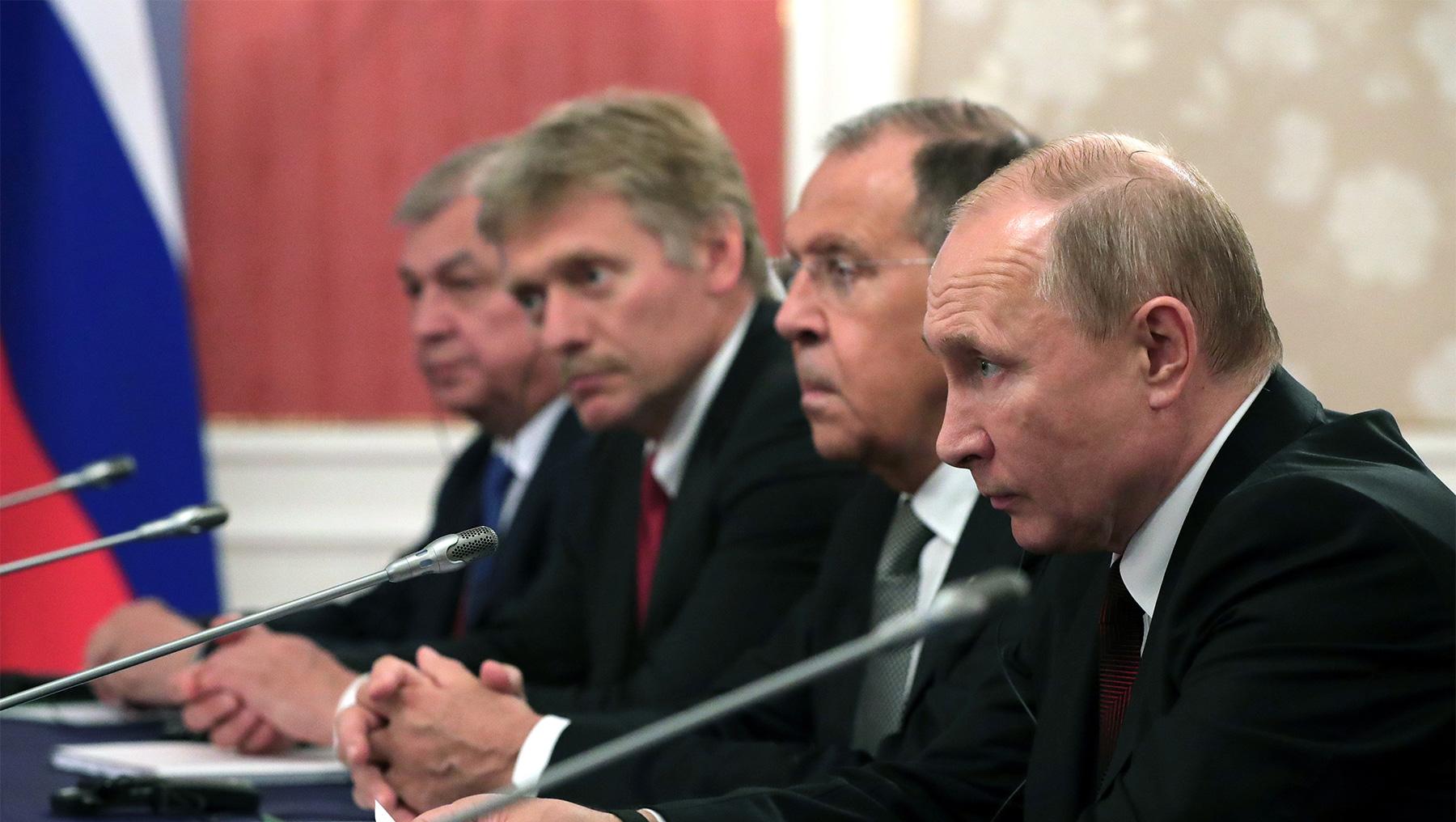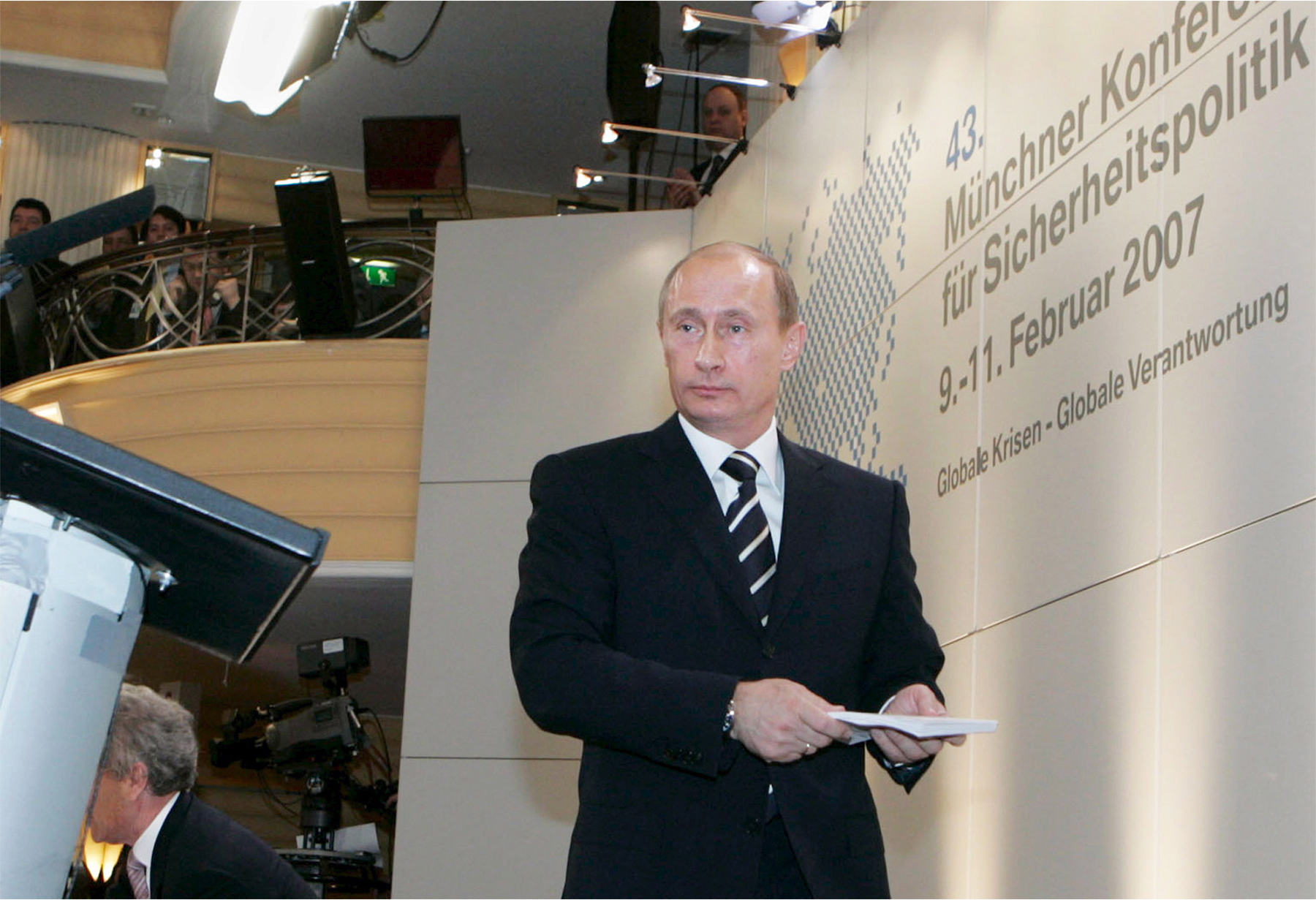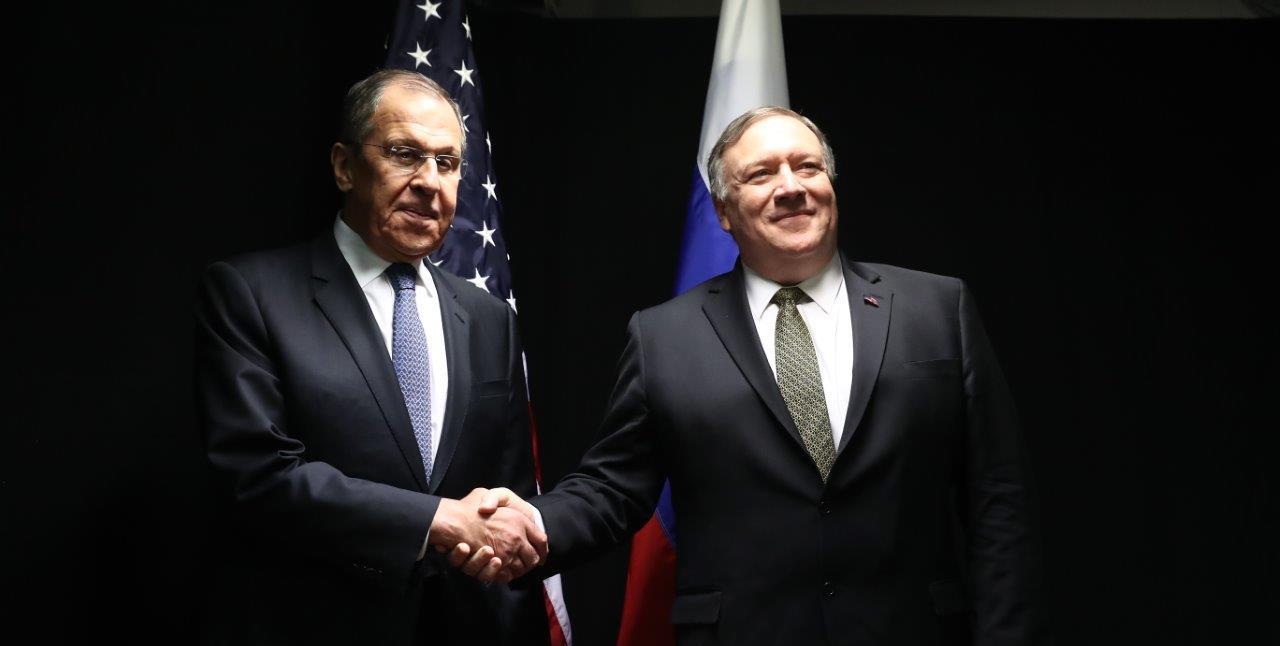American attempts to isolate Russia have backfired and after almost seven years of economic warfare, the U.S. has nothing to show.
In the past three years, Russia has been thrust into the American political spotlight like never before, earning itself both a reputation and mythology that posits Russia as the ultimate James Bond villain. At the heart of this mythology are misconceptions about Russia's aims, goals, and intentions that originate from an American media culture that is starved of intellectual diversity when it comes to Russia. That is, Russia is tarred as a pariah, an arch-nemesis of the United States and the effective Alpha and Omega of political discord because there is no American counterweight to keep such caricatures in check. Unfortunately, this mythological representation of Russia does not comport with reality, and the longer Americans continue to believe such unsubstantiated myths, the more U.S. policy-makers risk making foreign policy errors in regards to Russia.
American attempts to isolate Russia have backfired and after almost seven years of economic warfare, the U.S. has nothing to show.
In the past three years, Russia has been thrust into the American political spotlight like never before, earning itself both a reputation and mythology that posits Russia as the ultimate James Bond villain. At the heart of this mythology are misconceptions about Russia's aims, goals, and intentions that originate from an American media culture that is starved of intellectual diversity when it comes to Russia. That is, Russia is tarred as a pariah, an arch-nemesis of the United States and the effective Alpha and Omega of political discord because there is no American counterweight to keep such caricatures in check. Unfortunately, this mythological representation of Russia does not comport with reality, and the longer Americans continue to believe such unsubstantiated myths, the more U.S. policy-makers risk making foreign policy errors in regards to Russia.
Myth #1: Putin's primary motivation is to restore Russia's image on the world stage
Almost every time Russia is discussed in the context of its major foreign policy moves, the typical explanation for President Putin’s actions is that he is trying to revitalize Russia's former role as a world hegemon nostalgically. This is, in fact, an incredibly shallow explanation that avoids providing context to Russia's interests and the arguments Russia puts forward.
Russia, like most countries, has a foreign policy that is typically driven by economic self-interest. Whether it’s in Syria, Ukraine, Venezuela, or elsewhere — Russia’s motivation for intervening is to protect its economy and the billions of dollars that are represented by contracts it has with such countries. However, the country is also guided by the ethics of utilitarianism. That is, Russia wants to do the most good for itself and its citizens, but also people around the world. The problem is Russia and the U.S. have different ideas of what that means and how to accomplish that.
Myth #2: Russia opposes the U.S. just for the sake of opposing the U.S.
Russia's opposition to the United States is not motivated by spite, but rather a difference in interests and worldview. As mentioned before, Russia is typically driven by economic interests. The United States, for its part, has sought regime change in several countries that have economic ties to Russia. Whether this is by design or by coincidence is up to interpretation, but it inevitably forces Russia to oppose the U.S. or risk losing billion-dollar investments. That, however, is not the only reason.
Russia looks at America’s track record with regime change and sees such an approach as antithetical to the moral compass of utilitarianism: to do the most good for the most people. Russian experts point to recent examples like Iraq, Libya, and Syria, where the policy of regime change created more harm than good, with millions dead and even more still suffering today. Russia's approach is, therefore, oppositional to the United States because the former believes that peace and prosperity are more achievable through stability. Sometimes stability means supporting imperfect governments that the United States might deem as evil, but that raises another fundamental difference between the two countries.
The United States frames everything as a struggle between good and evil as if the world was a Marvel movie and “the good guys are always our guys.” Russia, on the other hand, realizes that this is a false dichotomy, that people and political actors are more complicated than the superficial labels we often give them. The world Russia lives in is more like the Game of Thrones where everyone is flawed to varying degrees, and we are required to work with the reality we have, not the one we wish we had.
Myth #3: “Russia wants to undermine American democracy”
Regardless of what you think about Russia’s involvement in the 2016 U.S. election, it wasn’t to “undermine American democracy”. It’s essential to keep in mind that Russia isn't the only foreign country involved in American politics. Israel, for example, spends millions of dollars in lobbying-related activities every year. Or for further example, Ukraine is another country so inculcated into the American political system that there is a Senate Ukraine Caucus, which is a sub-group of lawmakers in the Senate who advocate, lobby, and vote collectively for pro-Ukrainian policies.
Are Israel and Ukraine trying to undermine American democracy by involving themselves in America’s political system? No, and neither is Russia. Russia, like other countries, wants better relations with the United States, which could have been the aim of its actions in 2016.
Myth #4: Russia wants to expand and retake the post-Soviet space
This is another talking point that is repeated so dogmatically that it creates a narrative just accepted by people. The problem is that there no evidence for this myth. For example, we’re often told that Russia's invasion of the Baltic nations is imminent, that President Putin is just waiting for the right time to move and declare an all-out checkmate. However, if this myth were true, those who propagate it would surely be able to point to a speech or interview with President Putin where this intention is made known. The thing is, they can't and they won't because this objective doesn't exist. President Putin and Russia at-large has never expressed this intention, nor is Russia interested in creating a Soviet Union 2.0. These are ambitions that are projected on Russia, not ambitions that Russia itself embraces.
Moreover, Russia’s involvement in countries like Georgia and Ukraine is more complicated than the simplicity that this myth offers. In both countries, Russia acted on behalf of populations that legitimately favored either independence or reunification with Russia. For example, multiple polls conducted by the United Nations Development Program (UNDP) between 2009 and 2011 show that the majority of Crimeans favored reunifying with Russia well before the 2014 Crimean Referendum, which is not surprising considering that most people living in Crimea are ethnically Russian.
Myth #5: Russia is isolated
It's true that Russia's relations with the United States and the West right now are more than a bit complicated. Still, Russia itself is far from isolated, with its utilitarian approach to foreign policy allowing it to win friends and spread influence across the globe. Russia maintains excellent relations with China, India, and a whole host of other countries, mainly because the country is receptive to the interests of more than just itself and openly advocates for a multipolar world. It’s for this reason, as we see in Syria, that Russia can act as a legitimate mediator to almost all the key players in the region: whether it's the Sunnis, the Shiites, the Iranians, the Saudis, the Israelis, the Turks, the Kurds or anyone in between.
American attempts to isolate Russia, anchored by the false belief that such efforts are succeeding, have all but backfired. After almost seven years of economic warfare waged against Russia, the United States has nothing to show for beyond mildly harassing the former’s economy. Economic sanctions have not forced any shifts in Russian foreign policy. The country has instead become remarkably more influential and interconnected with the global community. More importantly, the United States has lost any ability to influence Russia positively — and that will have lasting implications.
Sooner or later, the United States will need to learn that the best way to influence others is through partnership and recognition of their interests, not economic coercion or half-baked mythologies.







